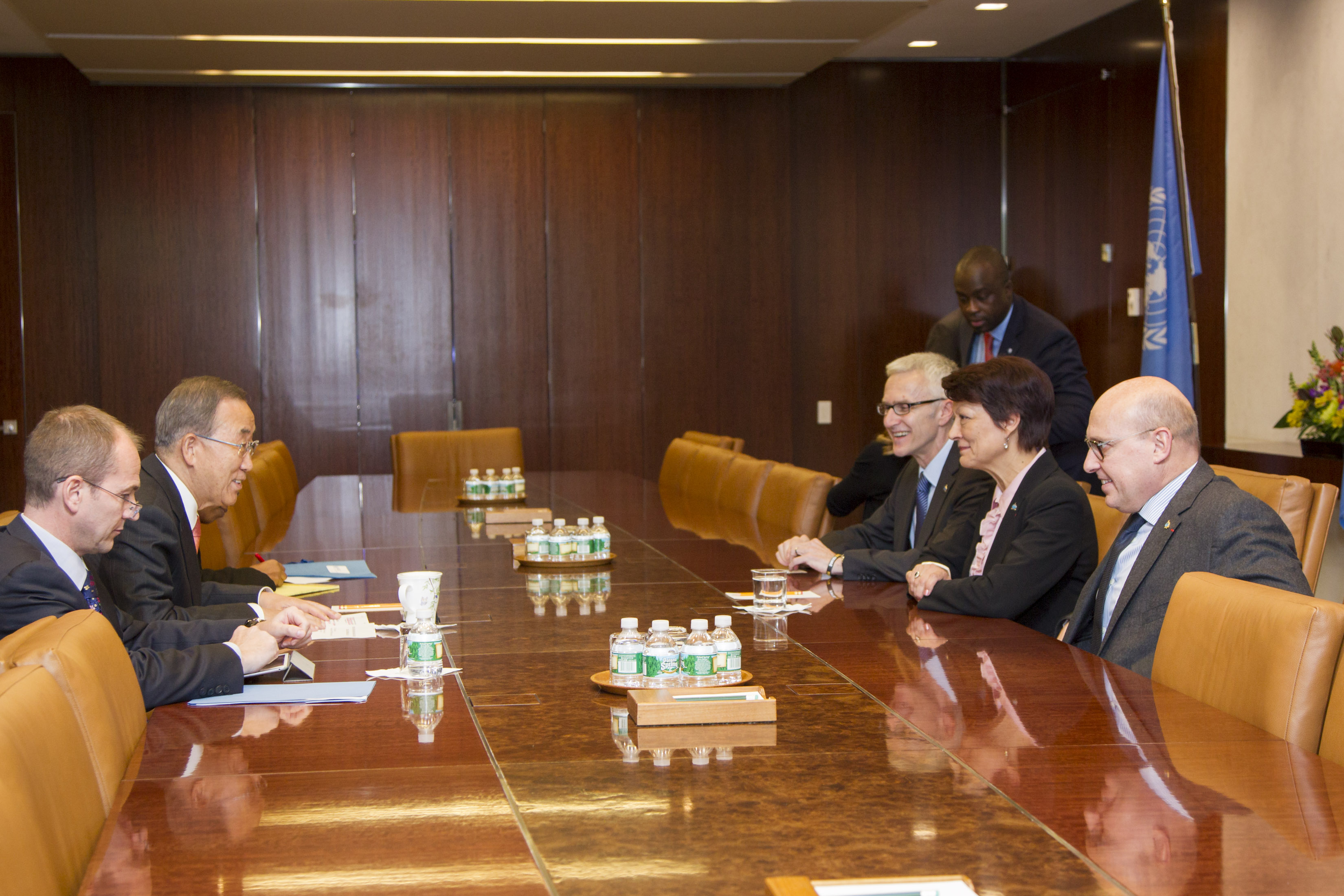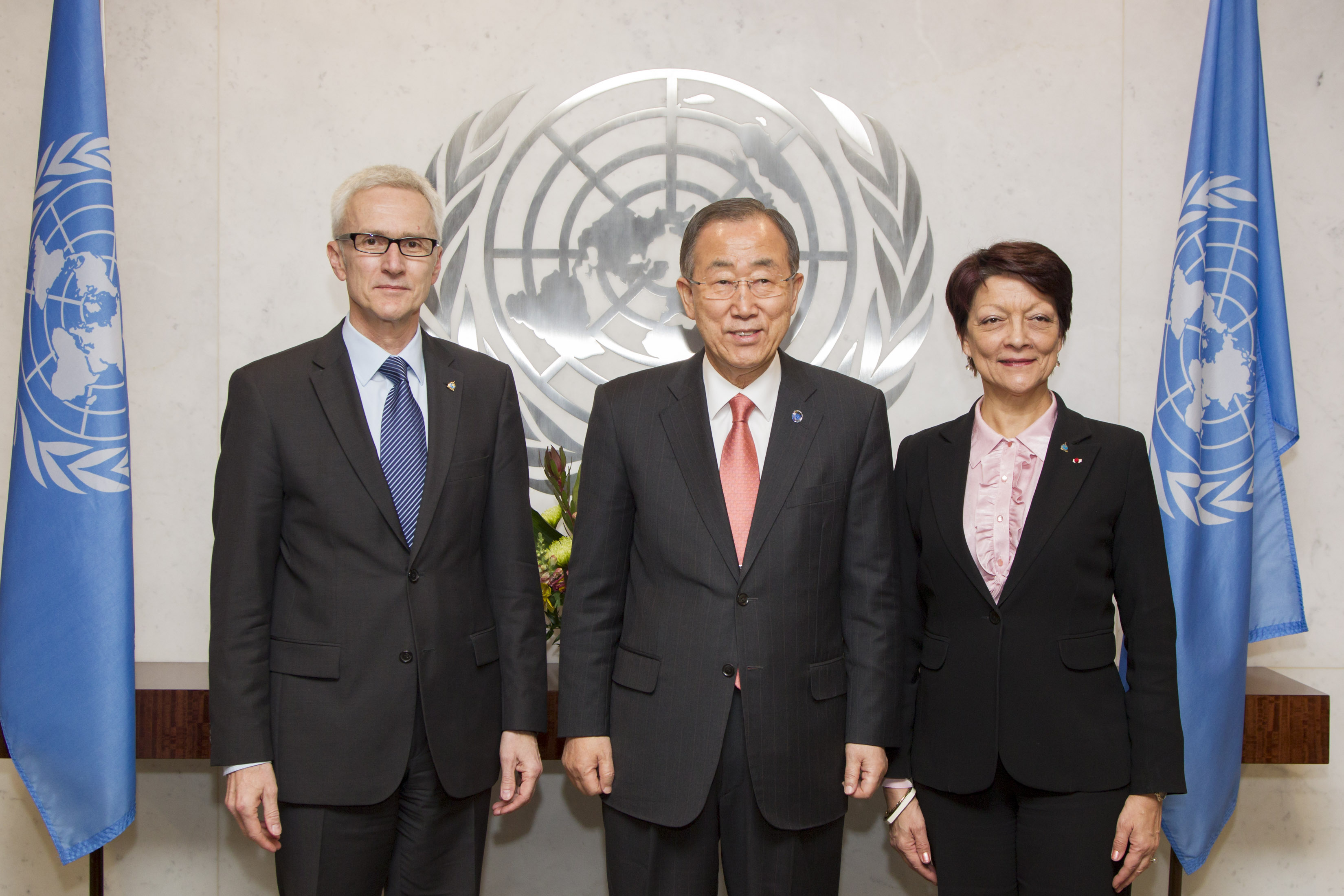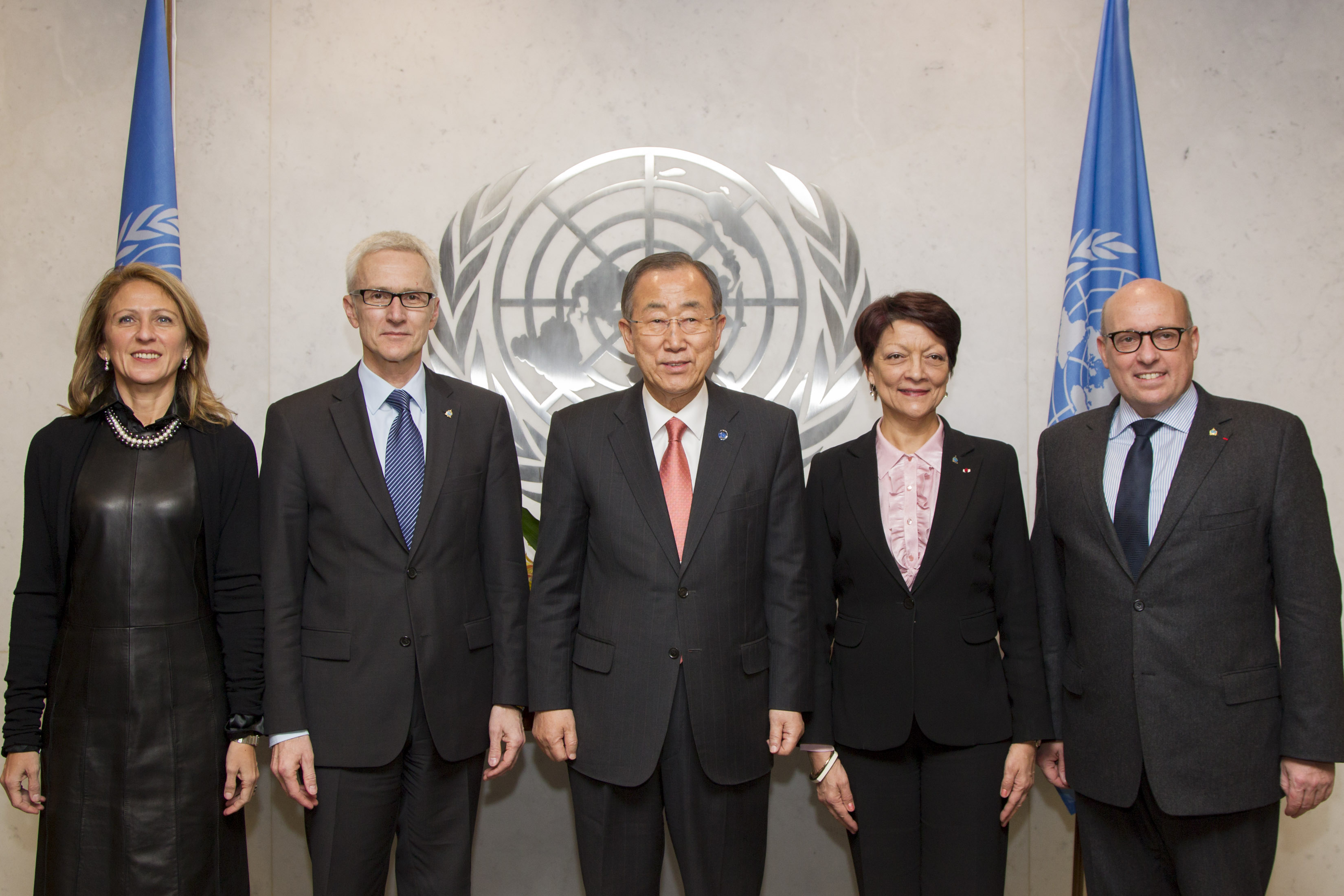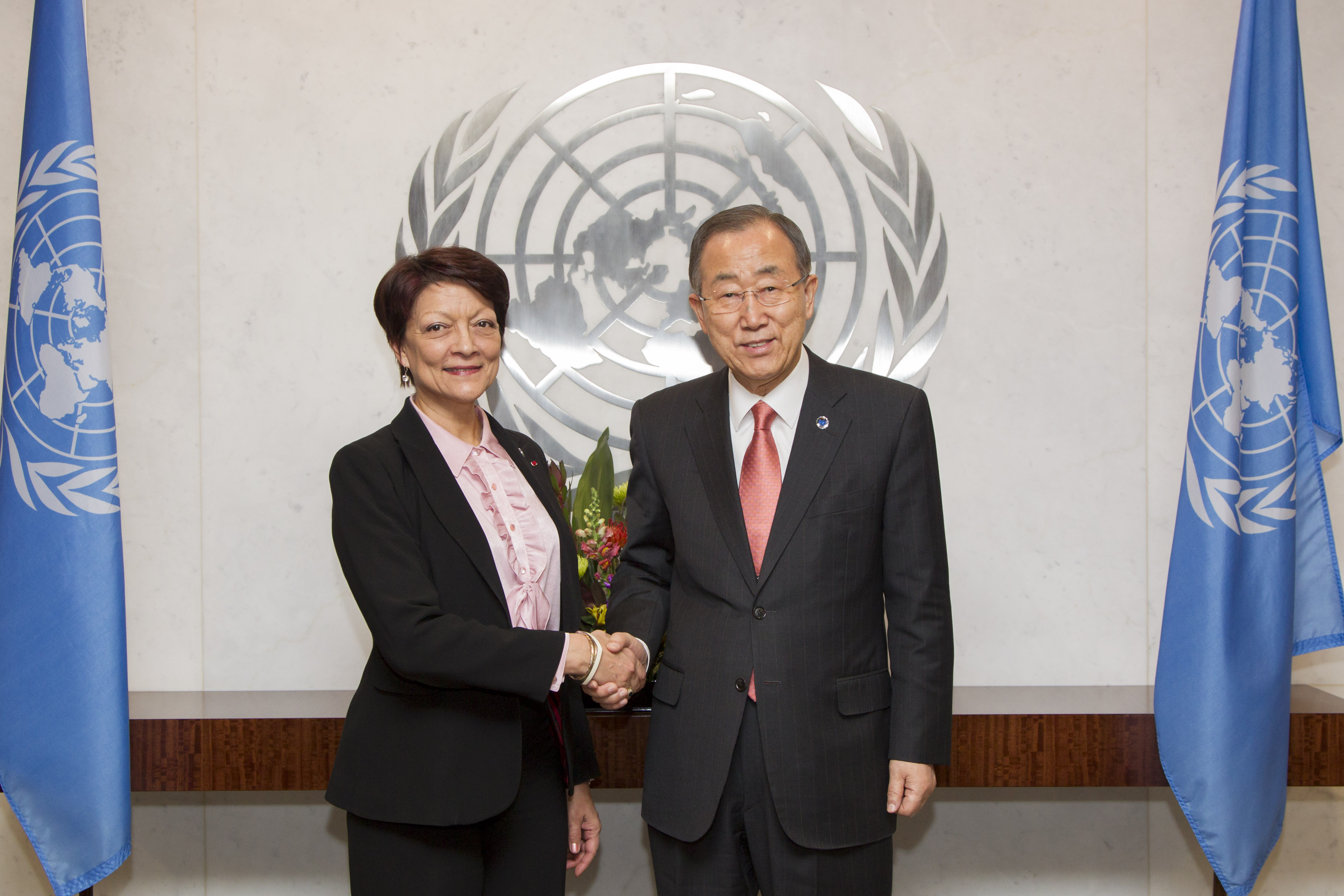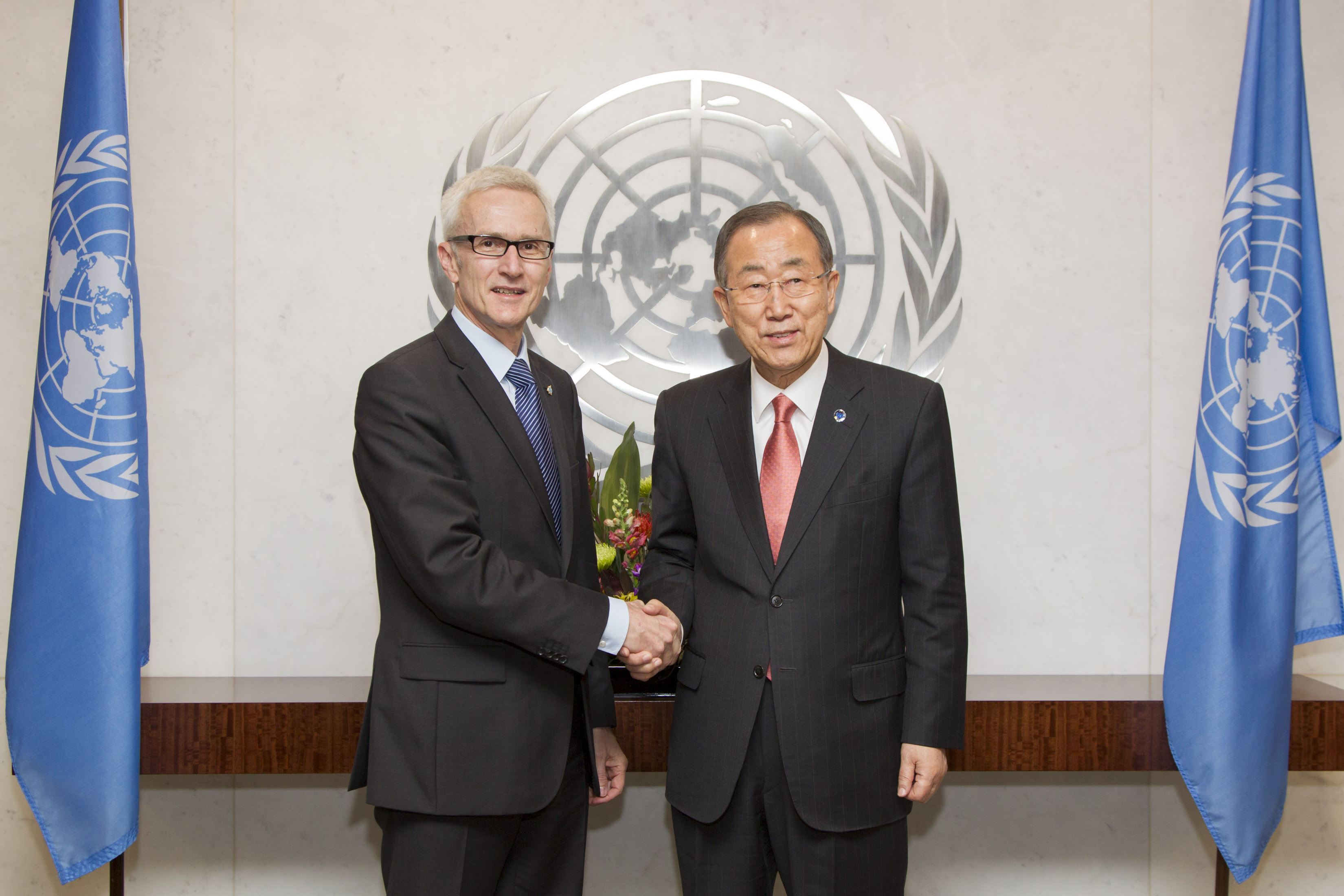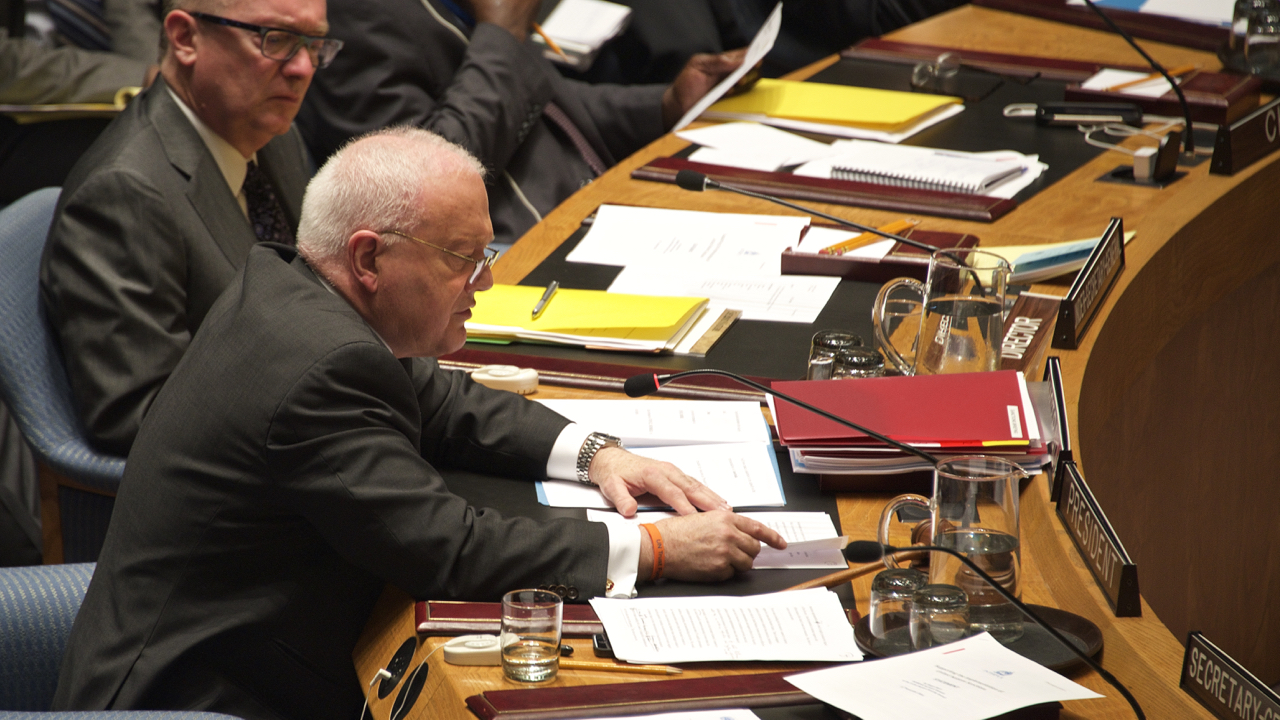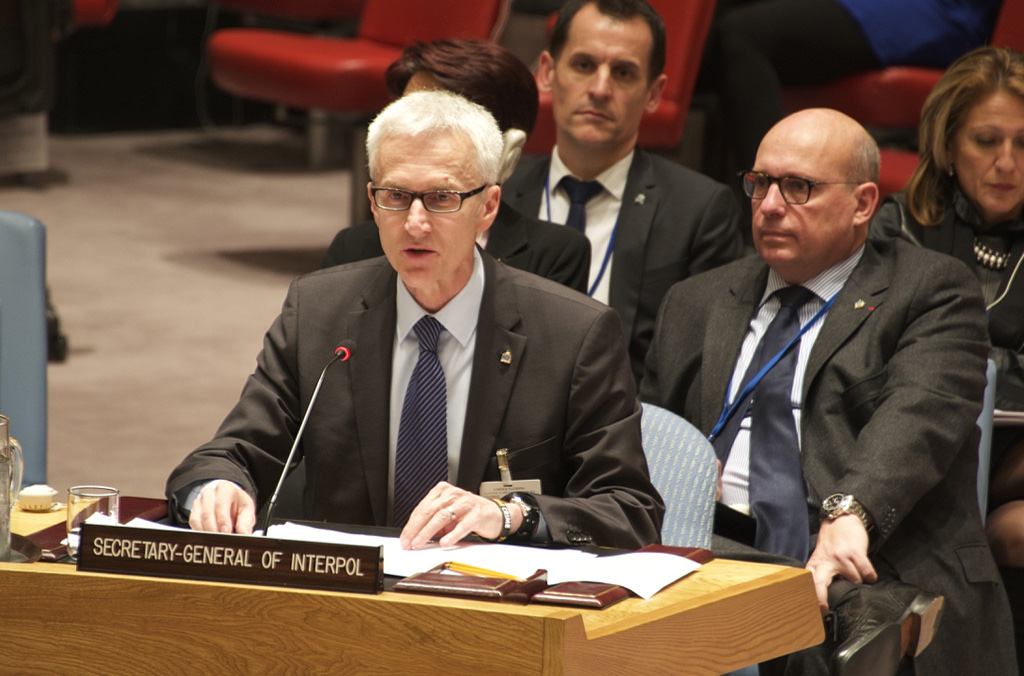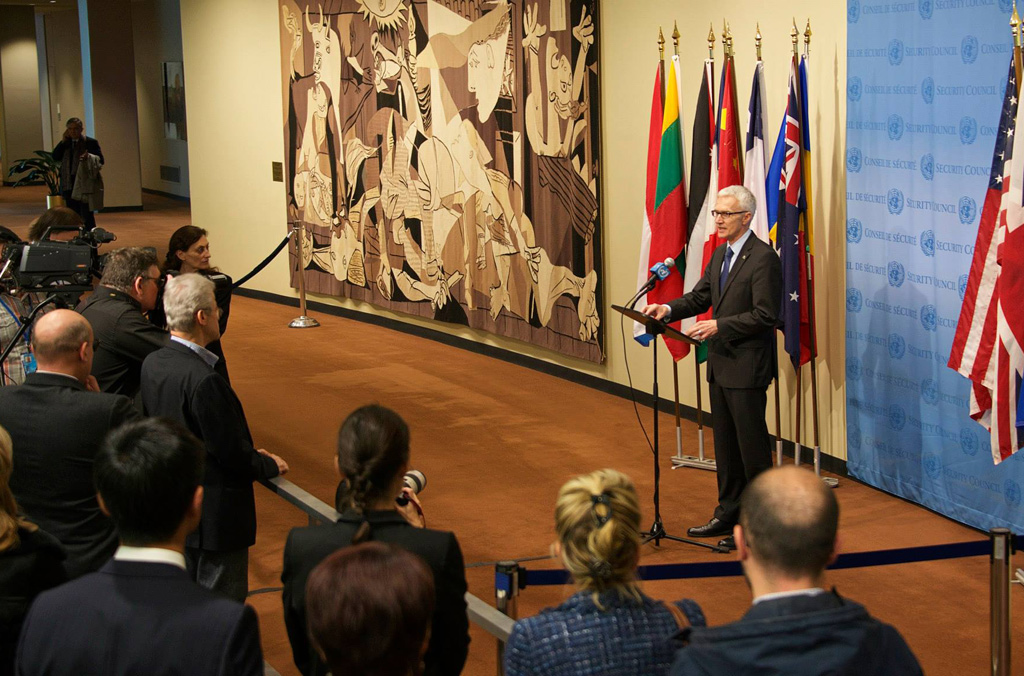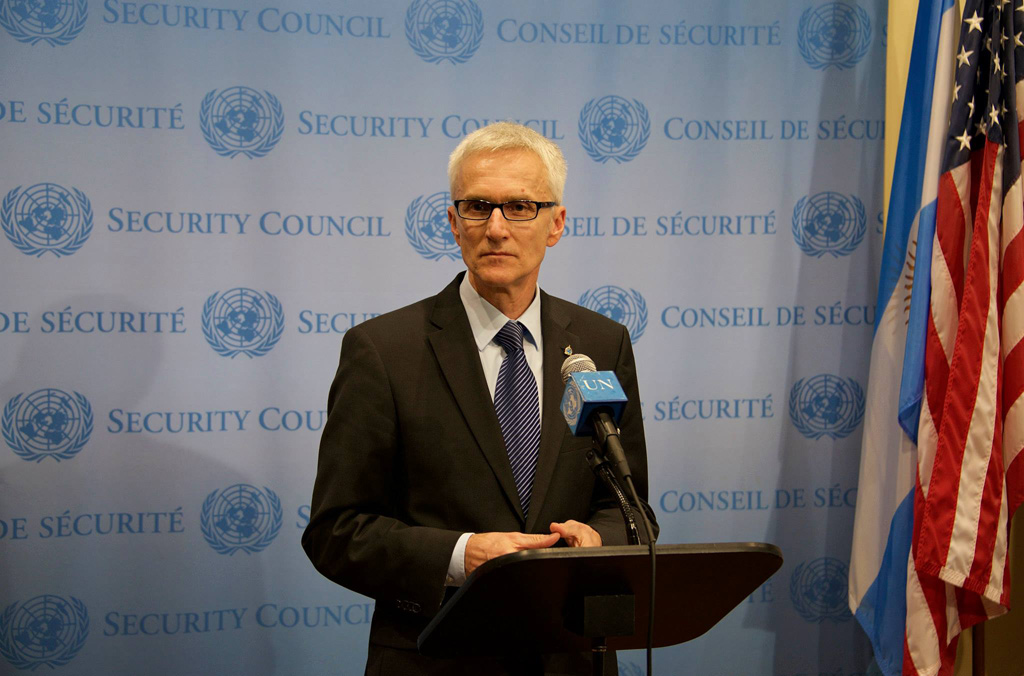UNITED NATIONS, New York – A high-level meeting between INTERPOL President Mireille Ballestrazzi, INTERPOL Secretary General Jürgen Stock and UN Chief Ban Ki-moon provided an opportunity for the two international organizations to advance their close cooperation against a backdrop of evolving international security challenges.
With 2014 marking the centenary of international police cooperation, UN Secretary General Ban Ki-moon said: "This meeting is another opportunity to deepen UN-INTERPOL cooperation on a number of global challenges including countering illicit trafficking and organized crime. It is particularly meaningful as we mark the 100th anniversary of international police cooperation. I look forward to continuing our work together to build a safer, more stable world for all."
Underlining the strong partnership between INTERPOL and the UN, Secretary General Stock said: “INTERPOL’s strong partnership with the United Nations recognizes the inherent role of international policing in shaping and reinforcing sustainable security across the world. Nothing short of a global collaborative effort can bring us closer to realizing our common vision of a safer world for all citizens.
Earlier, Secretary General Stock outlined before a meeting of the United Nations Security Council on sanctions how INTERPOL assists countries with the technical implementation and monitoring of the Security Council's sanctions regimes.
"As UN Sanctions have become more targeted, their implementation has become more complex for national authorities. INTERPOL can help countries to fulfil their implementation objectives, as well as enhance the effectiveness of targeted sanctions for countries as they transition out of conflict," said Mr Stock.
With more than 500 INTERPOL-UN Security Council Special Notices issued at the request of Sanctions Committees, Mr Stock said INTERPOL's capacity to communicate information on UN sanctions to police worldwide greatly increases their visibility.
The Security Council heard that the information from the UN Sanctions lists is accessible to the 25,000 authorized users in INTERPOL's 190 member countries, including some immigration and border control services.
Mr Stock further outlined how INTERPOL supports the implementation of UN sanctions by enhancing the quality of information available to the UN Sanctions Committees, by seeking additional details and identifiers such as identity documents, fingerprints and photographs to supplement the lists.
In addition to this support, INTERPOL assists in the effective implementation of specific types of UN sanctions, for example travel bans, asset freezing in the case of individuals, and arms embargoes.
The Head of INTERPOL also highlighted how INTERPOL's assistance to UN sanctions could be bolstered, such as through increased use of INTERPOL's global network and contacts, with meetings held for law enforcement officers to exchange information.
Other innovations could also include a compilation of national guidelines for implementing UN sanctions or the possibility of a new type of notice linked to asset freezing.
With INTERPOL having worked with the United nations since 1949, the opening in 2004 of the Office of the Special Representative of INTERPOL to the United Nations in New York has also strengthened the relationship and helped streamline the work between the two organizations.





